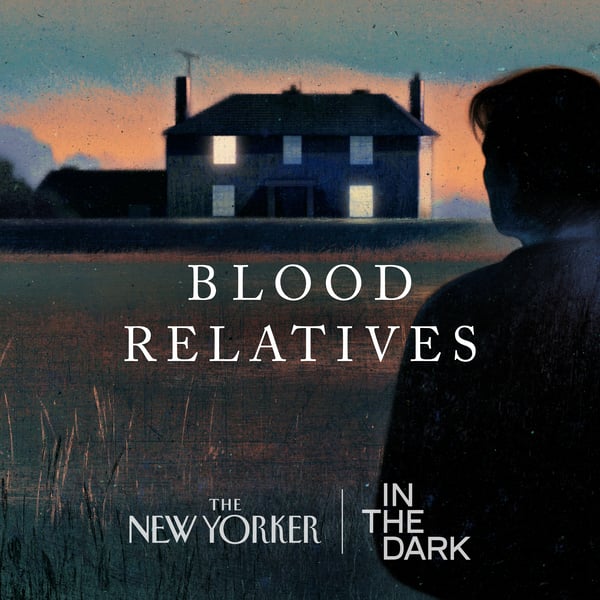Bonus: Your Season 3 Questions, Answered
In The Dark
The New Yorker
4.7 • 28.4K Ratings
🗓️ 12 November 2024
⏱️ 45 minutes
🧾️ Download transcript
Summary
Was it scary to knock on all those Marines’ doors? What was it like to report in Iraq? Is it still possible for any Marines to face consequences for what happened in Haditha? The In the Dark team sits down to answer your questions.
To view the online-only features of Season 3—the photographs, war-crimes database, and interactive documentary—visit newyorker.com/season3.
Have a story idea for the In the Dark team? E-mail us at [email protected].
We’d love to know your thoughts on In the Dark. Share them in a survey and you’ll be eligible for a prize drawing.
Transcript
Click on a timestamp to play from that location
| 0:00.0 | Hi, it's Madeline. I'd like to ask for your help with something. We're currently conducting a survey of our audience, and we want to hear from you as a listener of In the Dark. This is one of the best ways for us to learn about what you value as a listener, and it's a chance for you to help shape the future of our podcast. We want to hear from you. As a token of our appreciation, you'll be eligible to enter a |
| 0:22.7 | prize drawing of up to $1,000 after you complete the survey. You can find links to the survey |
| 0:27.7 | in our episode and show notes. Thanks for listening. |
| 0:34.7 | Hey, it's Madeline. |
| 0:40.2 | Since season three came out, we've gotten a lot of questions from listeners about the season. |
| 0:44.4 | So we wanted to come to you today to answer some of these questions. |
| 0:47.3 | I'm here with Samara Freemark, managing producer for In the Dark. |
| 0:50.8 | Hey, Madeline, I am excited to be here. |
| 0:52.8 | And thanks to everyone who wrote in, we read all of your questions, and we're going to try to answer as many of them as we can today. We're also going to be bringing in some other members of the In the Dark team to help us out on some of these. So let's dive in. Madeline, I wanted to start with a question about what it was like to report this season. |
| 1:12.4 | This question comes from a listener named Stacey, and she writes, as a former journalist, I was astounded by your willingness to plunge into reporting on the military, as the barriers and insular culture seem impenetrable to me. |
| 1:25.0 | How did you find reporting on the military different from the previous |
| 1:27.8 | long-form projects you've completed? Yeah, it is such a good question. This was very different. |
| 1:35.2 | You know, every time we go into some new in-depth story, we are in a way entering a different world. |
| 1:41.9 | The world of the military is complicated. And so we've got to do a lot of |
| 1:45.4 | work to have it make some sense to us. You know, this could be everything from, there's a ton of |
| 1:49.6 | acronyms in the military that we don't understand as outsiders. So even just reading a simple document |
| 1:54.9 | is a little bit challenging. Then there's cultural things you need to understand. Then there are |
| 1:59.3 | structural things you have to understand as well. |
| 2:02.0 | And, you know, all of this when you start out is relatively unfamiliar to you. And so that can be |
| 2:08.9 | daunting at first. But as a reporter, you know, this is one of the main skills, I think, of being a |
| 2:13.7 | reporter is the ability to quickly immerse yourself and try to understand a world |
| 2:18.4 | that you don't belong to. I mean, that is the fundamental task of reporting. And that's also, |
... |
Please login to see the full transcript.
Disclaimer: The podcast and artwork embedded on this page are from The New Yorker, and are the property of its owner and not affiliated with or endorsed by Tapesearch.
Generated transcripts are the property of The New Yorker and are distributed freely under the Fair Use doctrine. Transcripts generated by Tapesearch are not guaranteed to be accurate.
Copyright © Tapesearch 2025.

